Early March 2020.

Like most of the world, Acton Academy Middle School and Launchpad Eagles were moving ahead with life, deeply invested in building cities for the Electrified Quantum Community Quest (The Electricity Quest) and preparing their “I have a dream for my community” speeches on such topics as, city zoning and planning; recycling; public education; mass transit and whether city gurus Robert Moses and Jane Jacobs were heroes or villains.
Then the world stopped – but not our Eagles.
Delivering on Session Five’s Electricity Quest
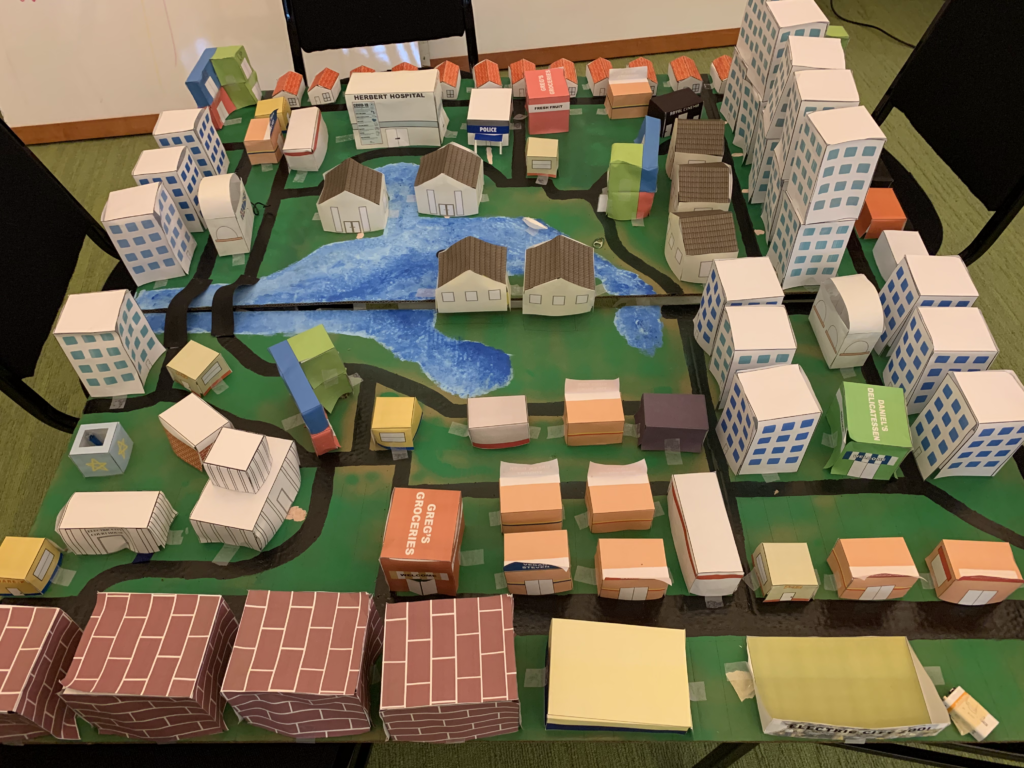
Before adults could spell “Zoom,” squads had reassembled with some Eagles on campus and others working from home, all continuing to wrestle with the session’s overarching question: “Are great cities planned or do they emerge?”
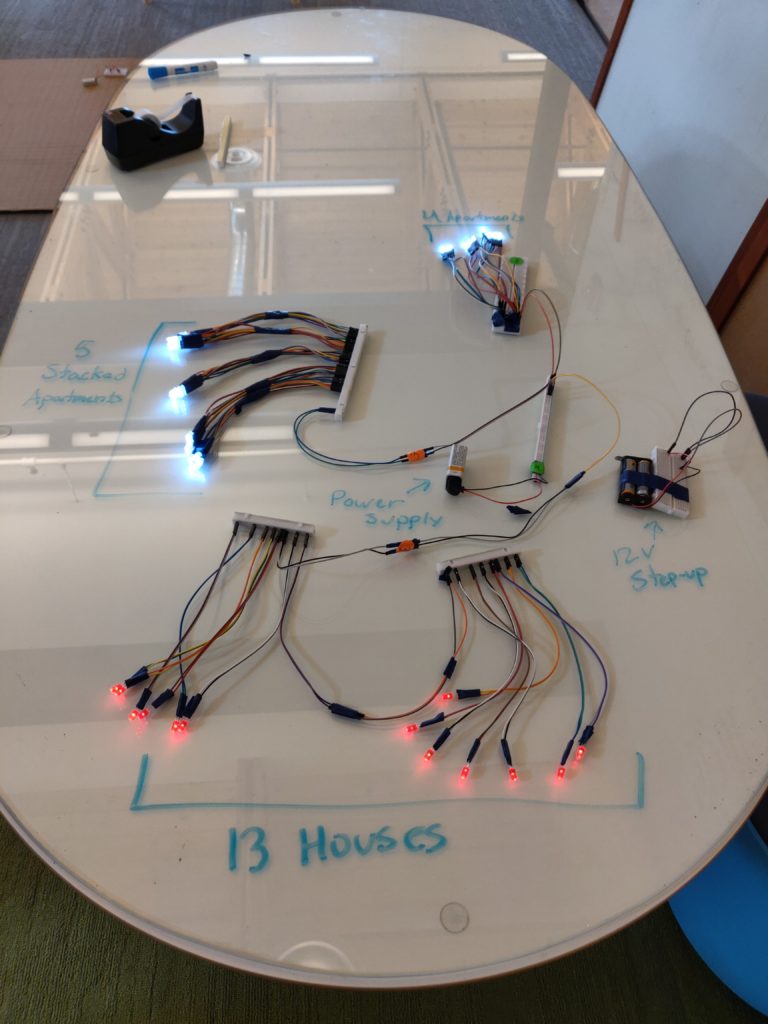
Eagles continued to solve over fifty simulated and hands-on challenges to earn building supplies, as tasks were delegated between studio and stay-at-home workers with a ferocity Google and Amazon would have admired.
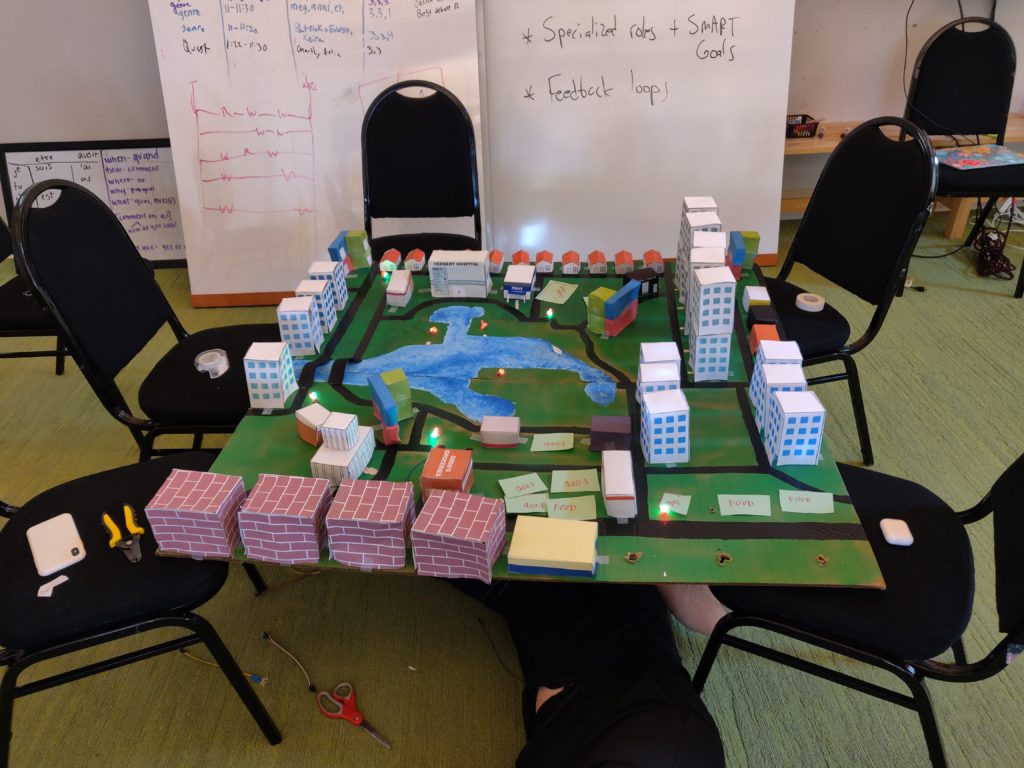
Who was right about city design – emergent advocate Jane Jacobs or master power broker Robert Moses?
As Eagles built circuits for their cities they pondered: was Edison right about DC power or was Telsa’s vision of A.C. electricity the best approach?
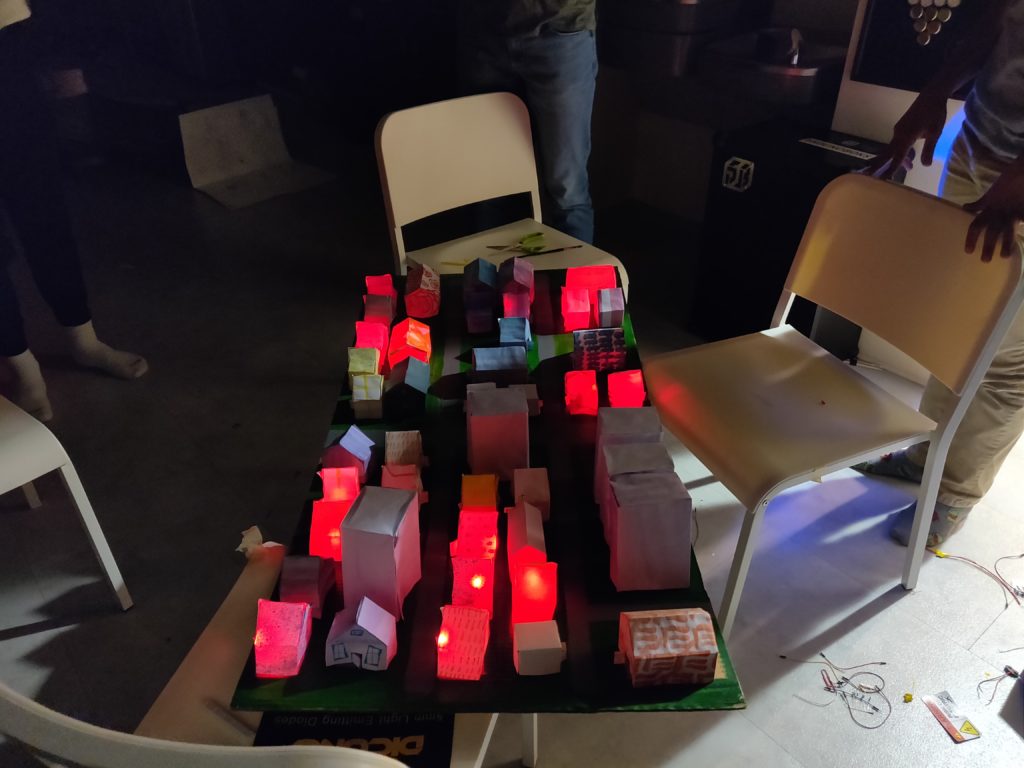
Eagles also had to decide which type of electrical generation to use – coal, gas, wind, solar and nuclear – and the costs and risks of each. The winning city would have the most beauty, the highest per capita income and the lowest cost of living per capita.
Did the Eagles pull it off? Just spend some time at their virtual exhibition and you can decide for yourself.
Session Six: the Programming and Problem Solving Quest
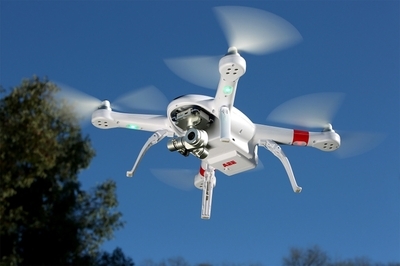
The pivot continued with Session Six and the Programming and Problem Solving Quest and the Big Important Question essay writing challenge.
In the Programming and Problem Solving Quest Eagles learned how to write code as they pondered the overarching question: “Is artificial intelligence discovered or created?” and answered questions like:
- What can computers/robots do and why can’t they do everything humans can (yet?)
- How do different programming languages differ and how are they the same?
- How do I tackle large and overwhelming tasks or problems?
- How can simple rules or elements combine to form complex, dynamic behaviors?
- How can various technologies be combined to create new products that help people?
- How can I identify and fix something wrong in a complex system such as a computer program?
Eagles learned different programming languages, built digital games, and programmed a real drone to autonomously fly while using artificial intelligence to process images and machine learning to make decisions in a final flying obstacle course at the exhibition.
In the Big Important Question essay challenge, Eagles explored how the process of writing an essay can help the writer formulate and organize an informed, coherent and sophisticated set of ideas about something important.
Eagles used Dr. Jordan Peterson’s Essay Writing Guide to explore questions like:
- Does evil exist?
- Are all cultures equally worthy of respect?
- How should a man and a woman treat each other in a relationship?
- What, if anything, makes a person good?
- What is intelligence?
- Who has a better life – an optimist or a pessimist? and
- Is the modern University doomed?

Finally, Session Six also was a time for Eagles to identify and land apprenticeships like the SpaceX apprenticeship shown above, using the six steps that follow– not an easy task during a pandemic.
1. Find an adventure that matches your gifts and passions.
2. Do deep research about your target company and who will be hiring you.
3. Create a compelling email, phone and in-person pitch, each advancing you closer to hearing the magic phrase: “I’ll give you a chance to prove yourself!”
4. Craft a clear covenant between you, your employer and your parents.
5. Prepare to execute by showing up early, working hard, staying late and taking careful notes about who you meet and what you learn.
6. Follow up afterward with a thank you note and request for a letter of reference.
In the end, the virtual Programming and Problem Solving exhibitions were a big (virtual) hit. Check out the exhibitions below.
- LP: Programming & Robotics Quest Exhibition (website w/ video)
- MS: Programming & Robotics Quest Exhibition (website)
Session Seven: the Art Quest
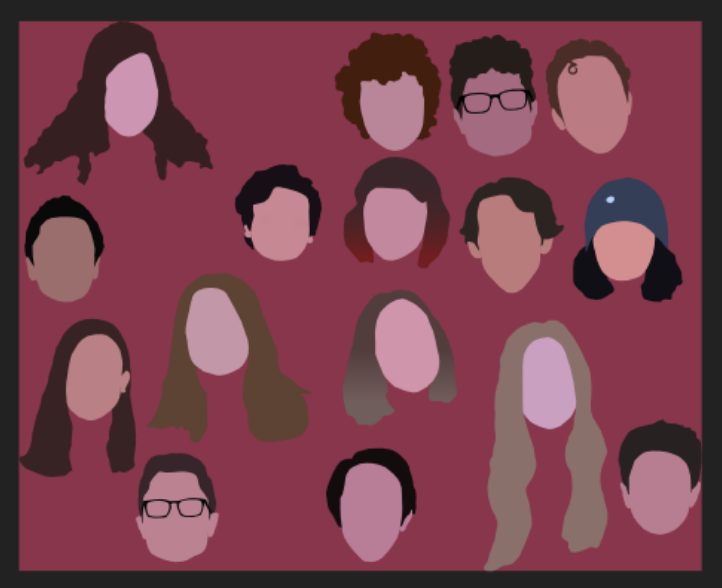
In Session Seven, Launchpadders and Middle Schoolers remained divided between campus and home but connected as a tribe with multiple Zoom calls and squad meetings.
All around the world queries poured in asking about the success of the Acton Academy “distance learning tools” – and we always had to explain it was our extraordinary learners and the culture they had built – not the tools – that allowed them to continue to operate at such a high level.
Session Seven’s Art Quest asked:
- Are artists born or created?
- Can everyone become an artist or just a gifted few?
- What do all artists, from ancient cave painters to Michelangelo to graphic designers all have in common?
Eagles first dove deeply into basic drawing skills, from learning how to “see” as an artist; to using a pencil to draw hands, feet and faces; to the subtle techniques of shading.
Next Eagles shifted to ink and landscapes, and later to using color and drawing mythical beasts, as well as using watercolor.
Finally, it was time to move to the business side of art: assembling a body of work; pricing pieces and preparing just the right displays for the exhibition.
Was the virtual Art Quest a success? You bet – a little virus cannot overcome beauty and creativity. See for yourself: MS/LP: Art Quest (website w/ video)